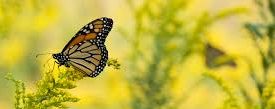
Prairie Chants
M.D. Coverley
Info and Reading Script
Prairie Chants
is made from smart phone videos and images,
off-the-shelf editing tools for video, image, and sound, and
recycled and re-edited audio tracks. It is published with Vimeo.
Audio:
Sacred Spirit
Chants and Dances of The Native Americans
Ya-Na-Hana (Celebrate Wild Rice)
Prairie Chants 2019 – Reading Script
Prairie Chants is part of a collection of
hypermedia, narrative videos that chronicle aspects of life on the
shores of Lake Michigan [called Michigami by some tribes].
In this video, a story of the prairie – and the native tribes
who once lived there – unfolds.
The past, the present, the future….
The tribal narrative happens to follow the
historic movement of the Sauk or Sac (officially Sauk and Fox) but
it could be that of any one of many eastern woodland people, indeed
hundreds of groups across the country, who were forced from their
homes, had their land taken by trickery or force, and walked their
own trail of tears into captivity.
“as if nothing that we had done — or given or given up — had
contributed to America.” Chief Pokagon,
Potawatomi
You might imagine that his had once been prairie
–
But maybe not….
For eons,
the native peoples
that lived
along the shores of the Michigami
fished in
the lakes and rivers,
sheltered
in the forests,
and hunted
on the prairie.
As they
were forced ever westward by white settlers,
they gave
up the shore,
then the
forest,
and,
finally, the prairie.
Since less than 1% of
the original prairie lands
remain in many states,
we find it easy to forget
the tribes that flourished
in the tall grass country.
The St. Lawrence Seaway, June 1680
Thunder Moon
Great Grandmother:
In the thunder of the summer rains,
our people must leave
the shores of the seaway.
We are beset on all sides
and weakened by disease.
The French have given muskets to
bands of Iroquois and Huron.
The warriors go ahead to find a
place for the winter.
We follow as we can.
Saginaw, Michigan, February 1734
Hunger Moon
Grandmother:
Long ago we lost our
ancient home and our name,
Othâkîwa. Now we are
the Sac, the people of the outlet.
The last
Mesquakies have
come to us for shelter.
The French are on
the warpath.
Of course, in 2019
you could see pieces of prairie
In special preserves
and at botanical gardens…
Chicago, Illinois, September 1803
Corn Moon
Mother:
At peace all year,
I hope our two boys and
My beautiful girl never see war.
We live beside the
Fox and the
Potawatomi
villages.
We plant and fish with
Them and hunt buffalo.
And so it came down.
After 1830 no
Tribes were allowed
east of the
Mississippi.
They were forcibly
settled in reservations
or drifted into towns
on the plains.
The peoples who knew
the land
as it once was have
passed – gone with the summer wind.
But their spirits watch
for
the return of the
prairie.
Saukenuk,
Illinois, January 1830
Wolf Moon
Daughter:
We have been Removed. My brothers have gone with
Keokuk to Half-Breed Town. My husband and
I have joined Black Sparrow Hawk.
The whites are on our land.
Many families
are starving.
Rock River, Illinois, October 1832
Hunter’s Moon
Daughter:
After the last battle
at Bad Axe, we went into
hiding. My husband
was
dead, my mother drowned.
I have been taken
By a white soldier
Who says he will take
Me to my brothers
Sac and Fox
Ojibwe/Chippewa
Potawatomi
Winnebago/Ho-Chunk
Menominee
Huron/Wyandot
Odawa
Miami
Illini
Cree
Wea
Tapouara
But just a few years ago, the prairie
Began to return in a surprising
Way. Solar Gardens sprang up,
Surrounded by restored prairie,
Pollinator-friendly, bird-loving,
Flower-and-grass havens.
Everywhere.
Keokuk, Iowa, June 1852
Strawberry Moon
Granddaughter:
Now I
live in the town.
At night, I listen to the wind out on
The old Prairie. In
my spirit dreams,
The sun is shining, the scent of
Mint grass and violets in the air.
The Prairie is alive again,
And I dance there.
Big bluestem
Black-eyed Susan
Indian grass
Little bluestem
Prairie phlox
Northern bedstraw
Prairie dropseed
Blazing star
Yarrow
Fragrant giant hyssop
Leadplant
Butterfly weed
Lindley's aster
Smooth aster
Side oat grama
Stiff tickseed
Canada wild rye
Common ox-eye
Wild lupine
Showy penstemon
White prairie clover
Purple prairie clover
Mountain mint
Upland goldenrod
Stiff goldenrod
Western spiderwort
Hoary verbena
Golden Alexander
Pussytoes
Whorled milkweed
Wild strawberry
Prairie smoke
Bush clover
Prairie violet
Is my Beginning”
Return to Legends of Michigami Main Page